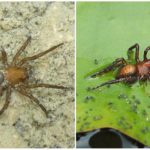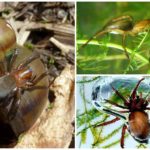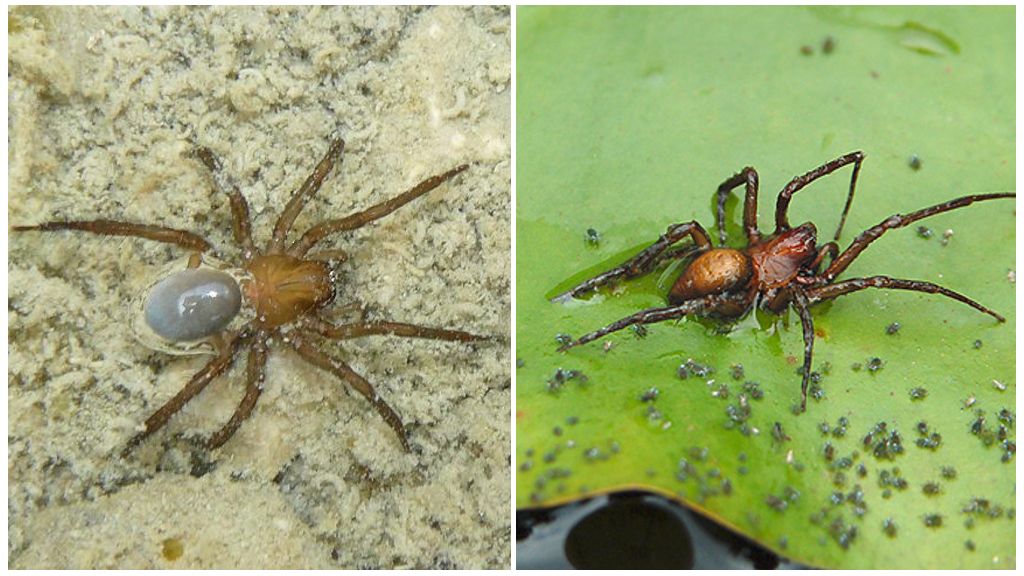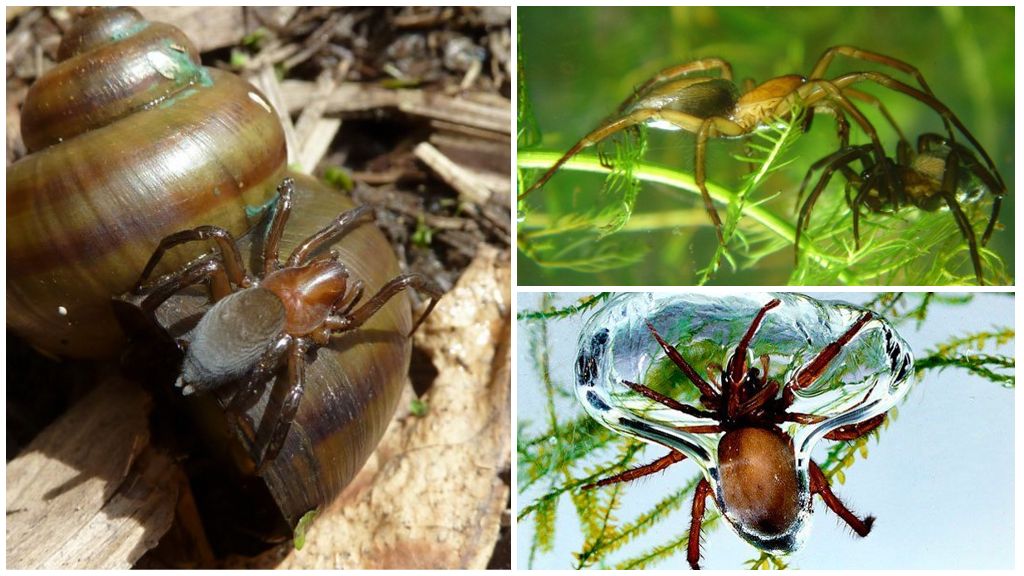Water spider (silver spider)
Content
- Water spider silverfish
- Water spider silverfish
Silverfish Spider - a unique water inhabitant. It lives in stagnant freshwater bodies, rarely appears on the surface of the water, does not creep out onto dry land. Widely distributed in Europe. In terms of toxicity, poison is second only to karakurt and tarantulas. A unique species differs from its relatives by its habitat, behavior, appearance, and reproduction.
Photos and appearance description
The water spider is a small arthropod, with a body length of up to 15 mm.Males are larger than females, which is unusual for many species. The color is light or dark brown.
On a note!
Serebryanka is called due to the peculiarity of accumulating air bubbles around the abdomen.
Typical structure - oval convex abdomen, cephalothorax, 4 pairs of limbs, chelicera, pedipalps. A photo of a silver spider is presented below.
The whole body, legs are covered with long thick hairs. On the surface focuses a special grease, which is produced by the spider glands. The secret holds air bubbles around the body, allowing the spider to breathe under water.
The eye is only 8. From the front of the cephalothora there are the main ones - 2 large ones. They allow you to see the images, shadows, silhouettes. Side - auxiliary, react to movement, the flickering of light, warn of approaching prey, the enemy. Water spider silver reacts well to fluctuations of water, vibration.
Lifestyle
Serebryanka lives in standing waters with green vegetation. He spends most of his life under water. Occasionally protrudes abdomen to the surface to gain air. The unique structure of the legs allows arthropods to swim well, dive.
There lives a water spider in the house, which makes it out of air in the form of a bell. How exactly he does it is difficult to describe. Initially, it always weaves a cobweb, then attaches a bubble with air to it, climbs neatly inside.
Interesting!
Females with males coexist peacefully in the neighborhood. The mating process takes place necessarily in the house "ladies". After the mating season, male individuals retire to their home without fear for their own lives.
The life span of silverfish is not more than 18 months. In winter, they form a dense cocoon from the web, climb inside or use empty shells. The entrance is covered with cobwebs, the house itself is attached to the plant, cracker, stones. The young generation winters, a small number of old females.
Nutrition
The water spider silverfish is a typical predator. In order to catch the victim, he builds traps of the net, stretches the threads to his house. In the waiting period, sitting inside, at the first vibrations of the web rushes to check the gear. Aquatic insects, larvae, fry, crustaceans become victims.
Initially, the spider injects poison, paralyzing the prey, then saliva. Under the action of special enzymes, the viscera turns into a liquid mass, which the predator then sucks.If the silverfish does not experience feelings of hunger, drags the prey into its bell, hangs it in reserve.
Breeding
The female is a caring, responsible mother. After fertilization forms a cocoon from a web, lays eggs there from 50 to 100 pieces. While the incubation period lasts, sits in the house, does not eat anything, waits for the completion of the family. After about 2 weeks, the young appear. Mommy releases them outside in an independent voyage. They build houses nearby or float over long distances.
Poisonous or not for man
Water spider silver on toxicity of poison is in third place after karakurt, tarantula. However, it bites very rarely. A person may suffer accidentally by pulling him out of the water along with the fish. Bite deals with the purpose of self-defense.
Redness, pain, burning, swelling, swelling appear on the body. People who are prone to allergies, with weak immunity, young children may experience a deterioration in health. There is a weakness, nausea, dizziness, headache, fever. The condition is normalized after a few days.To speed up the therapeutic effect of taking antihistamines.
The water spider is kept silverfish as a pet in aquariums. In artificially created conditions, the arthropod lives for 18 months. Feed insects.









